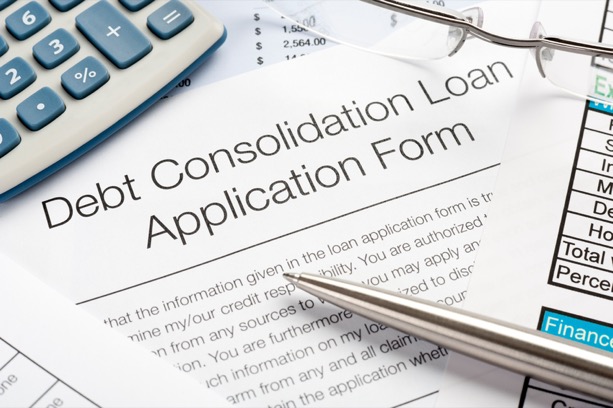Debt Consolidation vs. Bankruptcy

Both debt consolidation and bankruptcy are popular strategies to pay off credit card debt and put a halt to harassing phone calls and creditor threats. The programs differ in structure and legal protection.
Debt Consolidation
Debt consolidation is when you take out a single loan to pay off all of your smaller obligations. By consolidating your many debts under one loan, you can theoretically lower your interest rates and make your debt easier to manage with a single monthly payment. Either secured loans, such as a home equity loan or a loan from your 401K retirement fund, or unsecured loans, like a low-interest credit card, can be used in debt consolidation. When the loan is paid in full, the debt is considered settled with no negative impact on your credit report.
Bankruptcy
Bankruptcy is a legal protection that allows you to either reorganize your debt to enable you to pay it off or to liquidate your debt. Bankruptcy requires you to file for legal protection in federal court and requires you to pay attorney fees and costs associated with filing in court.
- Chapter 13 Bankruptcy is a debt reorganization plan. Under Chapter 13 protection, your debts such as student loans, property taxes and spousal support obligations will be organized into a manageable payment schedule spread over three to five years. Other debt, such as credit card debt, can be easier to manage under a Chapter 13 plan as creditors are no longer able to charge interest or late fees once your case has been processed.
- Chapter 7 Bankruptcy is available to those whose debt exceeds their income, often through no fault of their own such as economic downturns or job loss. Chapter 7 bankruptcy eliminates unsecured debt. A popular myth about bankruptcy is that you will automatically lose your home or vehicle. Your Clark and Washington attorney can help you understand fact from fiction in regards to Georgia bankruptcy laws and how they affect your case.
Filing for either form of bankruptcy will provide immediate court-ordered protection from repossessions, some wage garnishments, and other creditor threats. Filing bankruptcy will impact your credit report for up to 10 years after filing.
If you are weighing the pros and cons of debt consolidation vs. bankruptcy, contact your Clark and Washington attorney for additional guidance.



